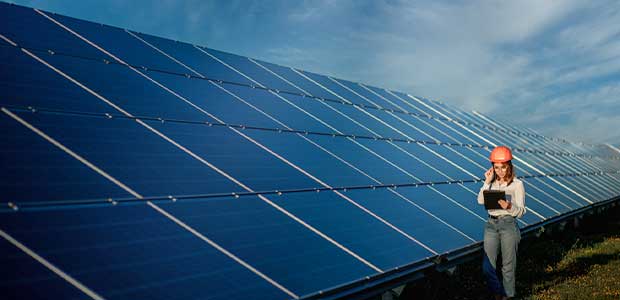Exactly How Solar Energy Can Help You Save Money and Minimize Your Carbon Impact
The integration of solar power into your power portfolio offers an engaging opportunity for both economic savings and ecological stewardship. As different federal government rewards become readily available, the concern arises: just how can one successfully browse the preliminary financial investments and continuous advantages of solar modern technology to maximize both economic and ecological gains?
Understanding Solar Power Financial Savings
While the shift to solar power commonly entails a first financial investment, recognizing solar power savings is crucial for homeowners and companies alike. Solar power systems can dramatically lower electricity expenses by using the sun's energy, translating right into significant long-term economic advantages.
In addition, solar energy systems might receive different financial motivations, consisting of tax obligation credit scores and discounts, better boosting their cost-effectiveness. The accessibility of net metering enables individuals to offer excess power back to the grid, producing an added income stream. These variables contribute to the total cost savings linked with solar power.

In addition to direct monetary savings, solar energy provides the added benefit of enhancing property worth. Residences equipped with solar panels are frequently more attractive to buyers, as they promise lower power prices - Simply Solar Illinois. Comprehending these aspects is essential for any person considering solar power, as it highlights not simply the potential financial gains, but also the more comprehensive environmental and financial benefits of taking on renewable resource solutions
Preliminary Prices vs. Long-Term Benefits
When examining solar energy, it is essential to evaluate the initial costs against the long-term advantages. The in advance financial investment for photovoltaic panels, installment, and relevant devices can be considerable, frequently ranging from $15,000 to $30,000, depending upon the system dimension and home power needs. This initial expense might prevent some property owners; however, it is crucial to consider the prospective savings gradually.
When mounted, solar power systems can significantly decrease and even eliminate monthly electrical energy costs, leading to significant long-lasting monetary advantages. Research studies indicate that homeowners can conserve anywhere from $10,000 to $30,000 over the lifespan of their planetary system, typically 25 years. Additionally, many states supply incentives, tax obligation credits, and discounts that can counter initial costs, making solar much more obtainable.

Reducing Your Carbon Impact
Lowering your carbon footprint is a crucial consideration in today's environmentally conscious culture, and embracing solar power is just one of the most reliable approaches to achieve this objective. Solar power is a tidy, sustainable source that dramatically decreases reliance on nonrenewable fuel sources, which are significant contributors to greenhouse gas discharges.

Moreover, the prevalent adoption of solar modern technology encourages the advancement of green jobs and supports developments in energy storage and effectiveness. The more individuals and organizations buy solar energy, the greater the collective decrease in carbon exhausts, cultivating a cleaner environment for future generations.
Government Rewards and Rebates
Taking on solar power not only profits the environment but can also cause significant monetary cost savings, particularly with the schedule of federal government incentives and discounts. Various government, state, and local programs are developed to urge homeowners and services to purchase solar power systems, making the shift much more budget friendly.
Among the most prominent motivations is the Federal Financial Investment Tax Obligation Credit Report (ITC), which allows solar system owners to deduct a considerable percent of the installation expenses from their government taxes. This incentive has actually been critical in reducing the ahead of time expenses linked with solar power systems. In addition, numerous states use their own tax obligation credit histories, gives, and discounts that can even more boost financial savings.
Additionally, some city governments give building tax obligation exceptions for solar setups, making sure that house owners do not encounter boosted property tax obligations as an outcome of their renewable energy investments. Utility companies may also why not try this out supply incentives, including internet metering and feed-in tolls, which allow solar energy customers to market excess power back to the grid.
Picking the Right Solar System
Selecting the appropriate solar system is crucial for taking full advantage of energy effectiveness and financial benefits. The choice pivots on several variables, consisting of power requirements, budget, and available space. Home owners must start by examining their electrical energy consumption to identify the system check these guys out size required for optimum efficiency.
Following, think about the different types of solar innovations available. Simply Solar Illinois. Solar (PV) panels are the most common, converting sunshine directly right into power, while solar thermal systems focus on home heating water. Each type has unique advantages relying on specific needs
Budget factors to consider are additionally extremely important. Initial installation expenses can differ substantially, so it is very important to compare quotes from several suppliers and explore funding alternatives. Government incentives and rebates can additionally decrease the economic problem, making solar systems more obtainable.
Conclusion
The ecological benefits of solar energy contribute to lasting practices essential for combating environment change. Government motivations improve the usefulness of solar technology fostering, urging a shift in the direction of a cleaner, more financially reliable energy source.